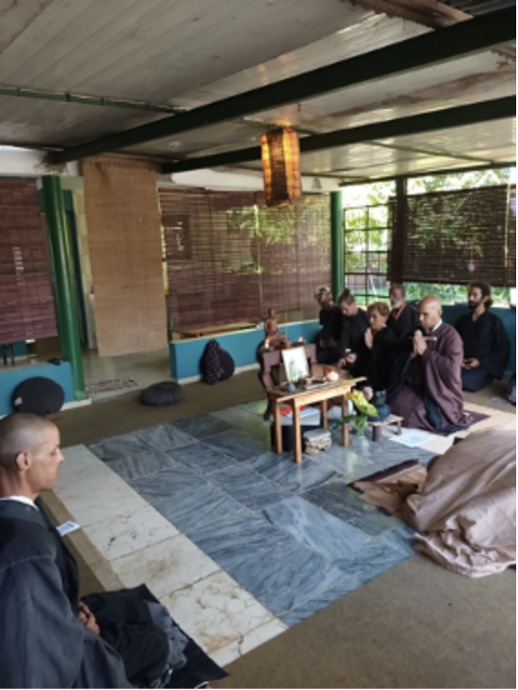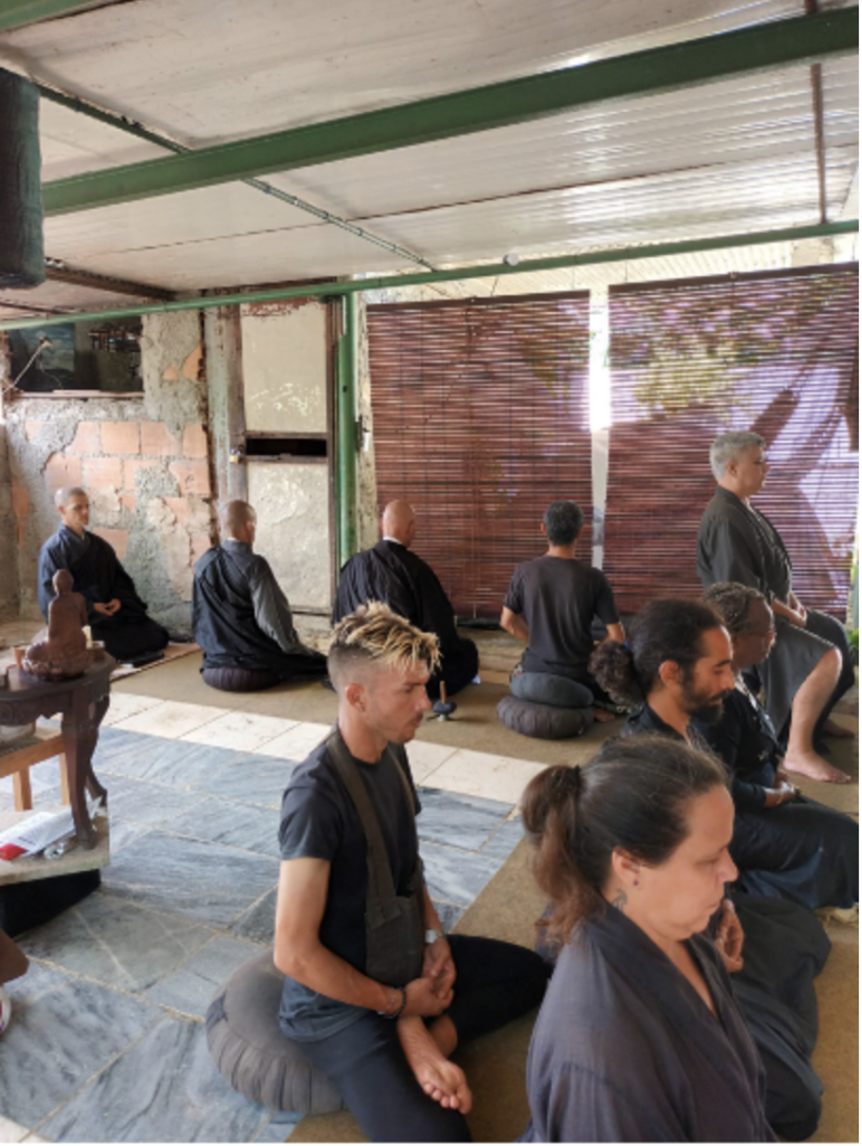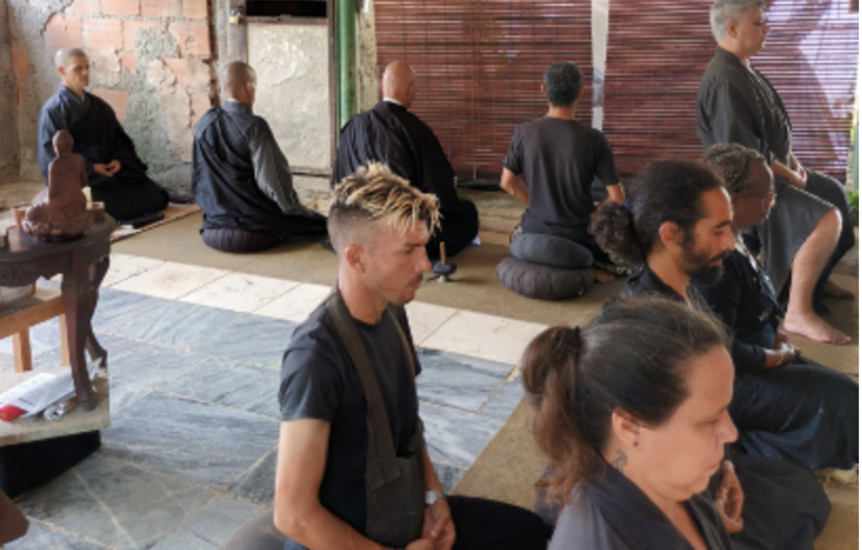By Belén Boville
Belén Boville is a journalist and writer. She is a Soto Zen Buddhist nun ordained by Master Barbara Kosen
In the morning, during zazen, you can hear the kikiriki of the roosters. Nature is fully present. At dawn, while you are sitting zazen, you hear the sounds of this community: the roosters and all kinds of birds and the croaking of frogs. Sitting quietly in zazen, all these sounds arise, the conversations of people on the street, fading as they move away.
Today we had a new practitioner: the little frog who jumped out of a water pipe, came to the dojo and then to the altar. It stayed under the Buddha statue for more than two hours, so calm, then it sat next to Master Deshimaru’s photo and stayed there until the end of the day.

The Sangha was founded in 1997 during a trip by Master Stefan Kosen. He came several times a year. And in 2005, at Stefan’s request, Master Barbara Kosen took over. Since then, she has been visiting the Sangha, although other Masters have also come: Pierre, Ingrid, and Vincent. Michel Tei Hei knew the liturgy of all of them, without rigidity, without orthodoxy, each with different forms, but always in the spirit of the Way.
In the early 21st century, the group tried to give the Sangha a legal form, an association. They went to register it with the relevant authorities. They were given the runaround, as the authorities had no intention of letting them set something up. There is a good deal of suspicion of any kind of religious or cultural organization because the government thinks they might be enemies of the revolution, or agents of imperialism and so forth. There is a constant paranoia, a suspicion of any form of organization outside the Communist Party.
Here, in the colony of La Lechuga, where they had arrived a few months earlier, Michel introduced himself to the “political commissar,” a local party representative, people who belong to a community but who also report all developments to the government.
Even when they started doing zazen in Havana in 1997, spies or informers would sneak into the dojo to do zazen and find out who they were. Once, at a sesshin in Guanabo, even the military came, always to do zazen, of course, because the dojo is open to everyone.

I’ve been left without a mobile phone, which means that my charger is broken, and I have to save the little battery I have left to try to fix it when I get to Spain; then I won’t use it at all. I am completely disconnected, which is absolutely necessary. Furthermore, I realize that this sesshin and this trip to Cuba will allow me to take a digital cure, a disconnection from computers, mobile phones, websites and search engines, applications and all the digital paraphernalia in which we have been immersed for more than twenty years. Furthermore, television, radio, soap operas and politics. Something very hygienic, very healthy for everyone. I am very happy without technology, I have found pen and paper again and my ideas slip between the lines naturally and easily. I sew, listen, read and write. Although technology is essential, it is very healthy to do this kind of digital cleansing, which, together with a simple life without desires or purchases, makes me feel that I am doing a complete cure, body and soul.


